Members of the Occupy Lincoln group noticed our recent article, “Occupy Lincoln Tipi Smokes and City Ordinances Burn, Officials Fiddle” and left a number of comments there. Because we’ll be referring to some of those comments in the body of this article, we’ve linked directly to them so those who wish may see a particular remark in its original context.
We think it’s very important to note something the Occupy Lincoln (OL) members who commented here totally overlooked: The majority of our attention has been focused on the actions of City of Lincoln officials, not on the Occupy group itself. Since OL members have apparently not read other articles on our site and since they raised a number of issues which we have not addressed to date, we decided it was more efficient and potentially interesting to GiN’s regular readers to respond to the comments in a couple of articles. This article focuses on political philosophy and policy issues raised.
We do appreciate comments from OL members who say they wish to engage in a dialogue, along with a couple of sincere invitations extended to visit the encampment, but will defer serious contemplation of such an idea for the moment. Since OL members are not likely to be familiar with GiN, in addition to providing the links to basic information about us, we are expanding the articulation of some principles here, directly. GiN’s Mission Statement, Principles, Policies, and Operating Philosophy, all laid out with much contemplation, are our guide, including regarding how we interact with other groups.
Do OL and GiN have a number of common concerns? Yes.
Are our principles similar? That’s the question.
OL members referenced “Democracy”…
“…join in our quest to get a Democracy of the people and for the people back into America.” – Betty
“…the Democracy that our forbearers worked so hard for.” – JrOLOM
It’s impossible to overlook the irony that exists in Occupiers’ calls for democracy for two reasons:
1) The United States of America is not a democracy, it is a constitutional republic. Our forefathers did not work hard for democracy, rather, they explicitly spoke against that form of government.
Perhaps one of the more concise articulations for why is contained in the following quote from one of those very forebearers:
“In Federalist No. 10, James Madison, often referred to as “the father of the Constitution,” said, ‘[D]emocracies have ever been spectacles of turbulence and contention; have ever been found incompatible with personal security or the rights of property; and have in general been as short in their lives as they are violent in their deaths.‘”
James Madison’s remarks, in articulating the reasons to support the Constitution, not only provide evidence that there was deliberate avoidance of democracy, there were sound reasons for it. A political movement that, at its core, calls for “income equity” – and indeed, outright class warfare – does seem incompatible with rights of property.
But Mr. Madison is not the only founder with a dim view of democracy. For other quotes, cited to their original sources, we refer to two GiN articles, written by Linda, which address this subject comprehensively, :
Majorities Don’t Always Know Best
2) It is, in fact, more than a century’s long march straight towards democracy and away from republican (note the small “r”) government which has laid the groundwork for the increasingly corrupt political system we have today.
It is not that our founders didn’t believe that our system existed for the benefit of the people, in fact, the opposite was true. They chose a representative government precisely because it struck a balance between what they perceived history had proven wrong with democracy — the undue influence of temporary public passion — and what they had personally experienced living in a monarchy — the tyranny of absolute power coalesced in an elite ruling class (the noble aristocracy) and personified in the form of a king or queen elevated (supposedly by God) from within that narrow elite.
An examination of amendments to the Constitution proves that more elements of democracy have been injected into our system over time, and it can’t be said that it has resulted in a government closer to or more representative of the people1. At least not if we accept the mutually agreed upon idea that there is too much corruption in government at present.
The promotion of democracy in America (and increasingly, around the world), especially for the last century, has really been about fomenting the populace for or against ideas of the moment. If politicians can just get a large enough number of people worked up, they can win the issue. We don’t think it’s a coincidence that the words “popular” and “majority” are synonyms.
Beyond “winning” an issue, politicians also foment populist sentiment to deflect responsibility.
And that brings us to what we see as a set of inherent flaws in the Occupy movement’s philosophy and in the statements, both those made in the comments on our site and others reported since OL’s founding in mid-October, by local members.
It seems patently obvious to us that the Occupiers’ core set of complaints is strikingly similar to a set of policies, phrases, and ideas that have been recycled over and over again for the past century:
- Big bad corporations, Square Deal – Teddy Roosevelt
- Big bad bankers, Federal Reserve – Woodrow Wilson
- Tax the rich / redistribution as part of “Relief, recovery, reform”, New Deal – FDR
- New Deal extension and expansion, Fair Deal – Harry Truman
- War on Poverty, Great Society – L.B. J.
- “Fair share” , “inequality hurts democracy”- Barack Obama
Very specifically, citing to the last item in the list above, it also seems patently obvious to us that Occupy adopts rhetoric long used by the President and by Democrats generally; which contradicts claims that “all are welcome” and the OL group is “post-partisan”.
Occupiers everywhere might wish to claim that President Obama stole their ideas for his December 6 speech, because those remarks are so very similar to Occupy groups’ core issues and statements. However, the President’s advocacy for increasing taxation on “the wealthy” or “the affluent” definitely predates the movement’s existence, as evidenced by many resources, including a February 26, 2009 article in the New York Times. We don’t know just when the President first used the phrase “1 percent”, but this, too, predates, at least by months, the Occupy movement, such as in April of this year when he said:
“The top 1 percent saw their income rise by an average of more than a quarter of a million dollars each.”
In addition to the several events cited above, we’ve written on this subject several times, including one article HERE. We hope the OL members can see why such evidence leads us to draw such parallels, and to see why we seriously question just how “post partisan” the entire endeavor could possibly be.
It seems to us that the Occupy movement generally, and the OL group, specifically, is serving the interest of one half of the Ruling Class about which the members complain by repeating talking points taken directly from their strategy book. Noting #2 above about democracy and politics in this country for too long, there are some obvious conclusions to draw.
Times are tough in the economy, it seems we all agree, and politicians have been fomenting class warfare and advocating for increasing “new” government interventions as solutions to distract people away from the primary cause for those tough times.
WHO writes the laws, promulgates the rules, and enforces the laws that sets the stage?
GOVERNMENT
In order for “Wall Street”, a.k.a. the banking and mortgage industry, to operate in the ways they did that resulted in an industry-wide meltdown, isn’t it curious that the entire climate, so heavily controlled and regulated as it has been for so long, both ensured that disasters would occur and that “too big too fail” creatures like AIG would ultimately be bailed out?
Who encouraged that climate, created the entities that regulated and set interest rates, and passed a flurry of legislation that set the stage? Government, through elected officials and bureaucrats, of course.
Who engineered, approved, and carried out the bailout? Government.
Yet, all of the solutions the Occupy movement proposes look to the very people who set the stage for all of these things to happen. That is inherently illogical.
- In order to bring about “income equality”, then government would have to take from some people and give to others.
- In order to prohibit campaign contributions by individuals or corporations, then government would have to violate rights to free speech.
Government is already picking too many winners and losers, so we cannot understand, of course, why Occupiers would look to that same place to provide solutions when there is provable history that we’ve seen this “movie” before. Again, we reference back to the historical fomenting of public discontent about problems in the country, noted above, and a long list of the continuing slate of “solutions” proposed by politicians to use government to solve them. History proves that the increasing interventions by government, in purported efforts to solve problems, have only compounded them.
So, beyond “winning” an issue and deflecting responsibility, politicians foment populist sentiment in order to increase the number and volume of calls from “the people” to “do something” to solve the perceived problem(s) of the day. Those politicians respond to such calls for action by making more laws, by promulgating more regulations, and, ultimately, by increasing the size and consequent cost of government and the degree to which it intrudes in the lives and appropriates to itself the property of each and every citizen. Of course, at the same time, the power and influence enjoyed by those same politicians increases as well.
(As an aside, we’re reminded of something Benjamin Franklin said – “They who can give up essential liberty to obtain a little temporary safety, deserve neither liberty nor safety.“ So much for seeking government solutions to the country’s problems.)
Another common thread running through the Occupiers’ comments is the desire for some unspecified “change,” presumably to abolish “injustice,” and/or economic or income “inequality”:
“[W]e know there is one thing that needs to change and that is our political system. Is there injustice? Everyday! Thats (sic) what we are there to talk about.” – Betty
“Economic equality and representative government are the civil rights issues of our time. . . . . Once the 99% understand their power, we can work together to change this country for the better.” – JrOLMO
“I would like to find some common ground between the left and the right on issues of income inequality . . . ” – Sir Reverence
We are incredibly skeptical that transformation of our system into a democracy, something it was never meant to be, would actually result in positive “change”. (And we note this mantra’s similarity to a historic election campaign three years ago, which often used this phrase.) In fact, there are very good arguments that the sort of democratic government the Occupiers contemplate would only accelerate the decline our nation is currently experiencing. Collectivism as a political/economic system — whether it be in the form of social democracy, socialism, communism, fascism, or, interestingly, corporatism — has proven itself a failure every time and everywhere it has been implemented. From the former Soviet Union (for some reason, this reference always reminds us of the “Artist formerly known as Prince“) to the European social democracy/welfare states that are imploding before our very eyes, where is there or has there been a successful, long-lasting, collectivist government in which its economy and its people thrived? There are none.
And, contrary to popular belief, collectivism has been tried in America. William Bradford, the governor of Plymouth, recounted the Pilgrims’ failed experiment with common ownership of land and “income equality.”
“The failure of this experiment of communal service, which was tried for several years, and by good and honest men proves the emptiness of the theory of Plato and other ancients, applauded by some of later times, — that the taking away of private property, and the possession of it in community, by a commonwealth, would make a state happy and flourishing; as if they were wiser than God. For in this instance, community of property (so far as it went) was found to breed discontent, and retard much employment which would have been to the general benefit and comfort.” (at p. 115-116)
 According to Bradford and the experience of the Plymouth Colony, collectivism works injustices of its own. Primary among those injustices is the assumption that all men, regardless of merit and effort, are entitled to the same rewards. The young men objected to being forced to spend their time and strength working for other men’s wives and families without recompense. The strong and the resourceful among them received no greater share of food, clothing, etc., than did the weak and the apathetic. Wives who were obliged to cook, sew, wash clothes, etc., for men and families not their own were likened to slave labor. “This was thought injustice,” Bradford informs us, and “if it did not actually abolish those very relations which God himself has set among men, it did at least greatly diminish the mutual respect that is so important should be preserved amongst them. Let none argue that this is due to human failing, rather than to this communistic plan of life in itself. I answer, seeing that all men have this failing in them, that God in His wisdom saw that another plan of life was fitter for them.” (Id at 116.)
According to Bradford and the experience of the Plymouth Colony, collectivism works injustices of its own. Primary among those injustices is the assumption that all men, regardless of merit and effort, are entitled to the same rewards. The young men objected to being forced to spend their time and strength working for other men’s wives and families without recompense. The strong and the resourceful among them received no greater share of food, clothing, etc., than did the weak and the apathetic. Wives who were obliged to cook, sew, wash clothes, etc., for men and families not their own were likened to slave labor. “This was thought injustice,” Bradford informs us, and “if it did not actually abolish those very relations which God himself has set among men, it did at least greatly diminish the mutual respect that is so important should be preserved amongst them. Let none argue that this is due to human failing, rather than to this communistic plan of life in itself. I answer, seeing that all men have this failing in them, that God in His wisdom saw that another plan of life was fitter for them.” (Id at 116.)
But, this aspect of “communal service” is what is commonly referred to as social or economic justice, and that’s what we understand the Occupiers to be referring to when they speak of economic or income inequality. (Incidentally, why is diversity the penultimate goal in all areas of life EXCEPT income distribution? Inquiring minds really want to know.) According to the Rev. Al Sharpton, “Dr. [Martin Luther] King’s dream was not to put one black family in the White House. The dream was to make everything equal in everybody’s house.”
But history has shown that, contrary to collectivists’ utopian fantasies, man simply will not work as diligently or as effectively for the benefit of others as he will work for himself and his own. It was true in Plymouth Colony in 1623, as William Bradford’s statements describe, and it is equally true today, because it is, quite simply, human nature. Man’s nature is such that we all work best when we are pursuing our own self-interests. There, is of course, a name for this system – capitalism.
Many allege that “greed” is inherent in the capitalist system, as if greed is somehow miraculously eliminated from the human psyche via collectivism. We can think of no more accurate and concise defense of capitalism from this charge than was given by Milton Friedman during a conversation with Phil Donahue on Donahue’s television show in 1979.
What Friedman said in the above video is true today. America’s history of capitalism and largely free trade has resulted in a population where, in 2005, the average poor person lived in a household with…
“a car and air conditioning. For entertainment, the household had two color televisions, cable or satellite TV, a DVD player, and a VCR. If there were children, especially boys, in the home, the family had a game system, such as an Xbox or a PlayStation. In the kitchen, the household had a refrigerator, an oven and stove, and a microwave. Other household conveniences included a clothes washer, clothes dryer, ceiling fans, a cordless phone, and a coffee maker.
The home of the typical poor family was not overcrowded and was in good repair. In fact, the typical poor American had more living space than the average European. The typical poor American family was also able to obtain medical care when needed. By its own report, the typical family was not hungry and had sufficient funds during the past year to meet all essential needs.
Poor families certainly struggle to make ends meet, but in most cases, they are struggling to pay for air conditioning and the cable TV bill as well as to put food on the table. Their living standards are far different from the images of dire deprivation promoted by activists and the mainstream media.”
As Friedman indicated, there are no “angels” to organize society for us. As James Madison said, “If men were angels, no government would be necessary[, and] if angels were to govern men, neither external nor internal controls on government would be necessary”. Since men are NOT angels and never will be, anarchy is obviously not a practical alternative to our present system, but neither is some collective utopia in which all injustice and inequality among and between men magically disappears. However, as Friedman argues, the record of history is crystal clear that the byproduct of capitalism and largely free trade has been improvement in the lot of ordinary people, in contrast to the grinding poverty experienced by the poor in the countries of the world where collectivist systems prevail.
In short, we do not believe we need “change”, we believe we need restoration of the constitutional republic, according to its original meaning. That means LIMITED GOVERNMENT, functioning to protect the natural rights of the people, of all of the people, equally.
Which brings us face to face with a fundamental problem we have difficulty overlooking; Occupy Lincoln talks about equality, but we can’t see it. To pick winners and losers is to treat people unequally, and in order to bring about what the group wants, government would have to pick winners and losers.
Are some Americans more equal than others? Apparently the Occupiers think so; that idea is inherent in the strategy of demonizing “the 1%” and claiming to represent the remaining 99%:
“The idea is that too few people hold too much power. Once the 99% understand their power, we can work together to change this country for the better.” – ILOVELINCOLN / JrOLOM
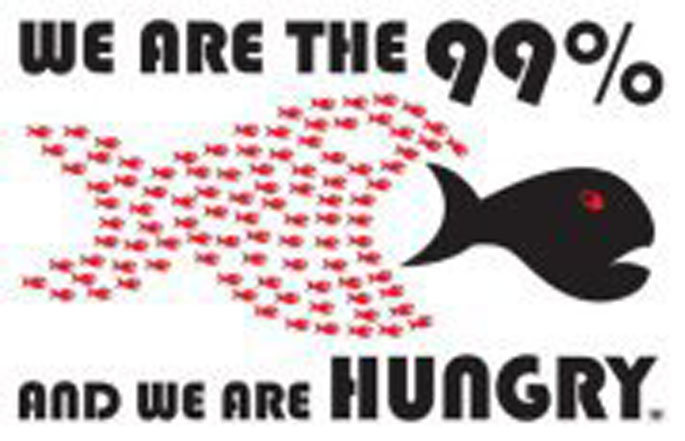 But is it really true that “the 1%” are “the enemy”, that as a result of their “greed” and their desire to not contribute “their fair share” that the economy melted down and is failing to rebound? We can’t see it. This concept of “eat the rich” is not at all new to us, and, from the very beginning, we were definitely put off when we saw the Occupy Lincoln group use as its logo, imagery that disturbed. It’s an allusion to violence – what else are such images intended to convey?
But is it really true that “the 1%” are “the enemy”, that as a result of their “greed” and their desire to not contribute “their fair share” that the economy melted down and is failing to rebound? We can’t see it. This concept of “eat the rich” is not at all new to us, and, from the very beginning, we were definitely put off when we saw the Occupy Lincoln group use as its logo, imagery that disturbed. It’s an allusion to violence – what else are such images intended to convey?
We point to a video that illustrates, quite starkly, that even if we did “eat the rich”, at least by confiscating all their wealth, we’d not get far at all in solving our nation’s problems. Note before watching the video, that we acknowledge there might be too much partisan humor for some within the video, but if viewers are interested in an actual illustration of what total confiscation would actually accomplish and are willing to overlook such humor, it might be informative – click HERE to view.
We have that video embedded, along with a good amount of additional information regarding “eat the rich” as public policy and that policy’s failure to solve these perennial problems:
Soaking The Rich: Why Warren Buffett Is All Wet
Debt Ceiling: I Laugh Because I Must Not Cry – That Is All!
In addition to calls for “income equality” and a targeting of one segment of the American population, Occupiers everywhere reference repeatedly the many ills caused by corporations. OL members’ comments, indeed, included such references, as follows:
There are fundamental problems with corporations running our government and it needs to stop. You may not agree with the tactics, but the message is hard to dispute. – Betty
That is why I protest the notion that politicians be allowed to take unlimited campaign donations, from the hugest corporate interests in the world, essentially destroying the Democracy that our forbearers worked so hard for. – ILOVELINCOLN / JrOLOM
We actually do take issue with the message about “corporations running our government”, “hugest corporate interests” (and certainly do not agree with unconstitutional limitations on speech) as standing alongside “the 1%” as the root of all evil.
Occupiers seem to be unaware that the concept of incorporating has been around for a very long time, and was, in fact, key in the settlement of America, as noted in the 1917 essay “Corporations in the American Colonies“:
“It was a corporation to which Sir Walter Raleigh, in 1587, entrusted the colonization of Virginia. The first permanent English settlements, both in Virginia and in New England, were made on the initiative and at the expense of corporations modelled after the contemporary joint stock companies for foreign trade. For over a century before the Revolution the colonies of Connecticut and Rhode Island were each governed by a “Governor and Company,” incorporated by charter from the English crown. The colony of Georgia was founded, and for twenty years had its destinies directed, by a group of charitable English gentlemen who constituted a typical English eleemosynary corporation. The London and Edinburgh missionary societies, incorporated, were important factors in promoting the religious development in several colonies…”
Note the missionary societies, in addition to the business interests, and governing bodies which were corporations. The practice of incorporating, the formation of a corporation for all sorts of purposes has existed for a long time. There have long been debates regarding whether or not various entities in Ancient Rome were more or less similar to what became known as corporations; they at least constituted relationships between partners and among small groups and businesses, and governmental entities.
It seems ironic to us that a group which has formed its own corporate entity would point fingers at other corporations. Readers will note that Occupy Lincoln apparently filed as a non-profit corporation so it could raise funds to pay the expenses of its operations. We are not denigrating the group for making the choice to do this – although we decided from the beginning to avoid this path for many reasons – we simply point out that in order to raise money on an ongoing basis through the acceptance of donations, Nebraska law requires some sort of filing status. Most of the time, such groups choose non-profit status to avoid taxation of the donations as income.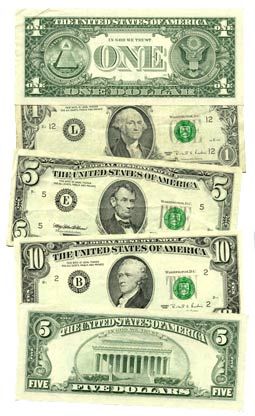
It is a fact that under whatever construct, whether 501c3, 501c4, 527, or any other type of non-profit filing status available, such an entity is indeed, a type of corporation. We can only presume that if the concept of corporations, in and of themselves, were indeed so odious, then the group would not have decided to become one. We are only left to wonder…
Is it the profit motive then, that is the root of all the evil?
Is it the sheer size? In asking this, we harken back to JrOLOM’s remark about “hugest corporations”.
Earlier in this article we referenced “creatures” like AIG, underlining that we clearly took a dim view of the government policies that paved the way for “too big to fail” – we clearly believe such monstrosities have only come about because of government policies. We might agree that such artificially inflated creatures are signs of ill health in our economy, but we do not believe that for-profit corporations, in and of themselves are evil, nor that size alone is necessarily any indicator of inherent evil or purity.
We agree with much (but not all) of Sir Reverence’s statements about the problems with money influence in politics:
“I would like to find some common ground between the left and the right on issues of income inequality and the undue influence of money in politics, as I don’t see these as strictly left or right issues. We are frustrated with both parties and all three branches of government because they seem to have all but stopped listening to those who don’t “contribute”. –Sir Reverence
We’ve already registered our disagreement with OL regarding “income inequality”, but we must also note disagreement about the “all three branches of government”; the judiciary should not be affected by who contributes and who doesn’t. We would say that out of all three branches, whatever its flaws, the judicial system is the least problematic. We believe the judicial branch, due to its inherent differences from the other two branches, must be considered separately from the legislative and executive branches.
Beyond that, however, Sir Reverence speaks of undue influence of money in politics – a problem found within both major political parties – and points out that people in government don’t answer much to those who don’t contribute. We definitely concur and appreciate this broader view.
And what about that money influence? Some questions –
Besides corporations (as in, those presumably indicated as the problem, those seeking profits)…
- Do non-profit corporations necessarily stay away from efforts to politically influence?
- What about “small” non-profits which operate, albeit in a limited way, but for the express purpose of influencing politics?
- And what about those entities which are associations and totally unincorporated who influence politics?
We ask about these types of groups, because an examination of campaign contributions to specific candidates from corporations, individuals, and all sorts of entities, to and from certain entities like Political Action Committees (PACs), from one political campaign to another, etc., would show that the Occupiers are far too limited and, in fact, partially inaccurate in focusing their ire at for-profit corporations.
We have included a snapshot here from the Open Secrets website, listing the top campaign contributors for the past 23 years at the federal level (Open Secrets obtains its numbers from the Federal Election Commission):
Here is the same image again, this time annotated:
In the annotated version of the image, it becomes very clear that 12 of the top 20 “Heavy Hitter” contributors are labor unions; meaning 60% of the heaviest contributors. That seems a stunning number to us, considering the most recent figures from the Bureau of Labor Statistics, which report that just 11.9% of the workforce is unionized. The statistics also show that the number of unionized workers is on the decline. Those concerned about “undue influence” might ponder this lopsided equation2 We point to contributors number 3, 5, 6, and 11 on the list. AFSCME, SEIU, NSEA, and AFT are all public employee labor unions. In real terms, that means taxpayer dollars are literally being used to fund some of the most powerful money influences in politics – a taxpayer funded lobby. (Taxpayer dollars pay the wages from which the union dues come.)
We don’t have further space to devote to explaining just how huge a problem the power coalition of labor unions are in influencing public policy at the federal, state, and local levels. For OL members and all Americans who opposed the idea of bailouts, all should be outraged, in fact, to learn that the February 2009 “Stimulus” Bill and at least one other bailout (August 2010) were actually, in part, bailouts for states to rescue their public employee retirement funds. See the Footnotes3 for a list of some of the articles on the subject of cost of public employees and the impact of this political power coalition on Nebraska’s budget and public policies.
We do believe that unions actually constitute a greater threat than do for-profit corporations.
But we do not ignore that there are corporations on the “Heavy Hitters” list and, in fact, it is no surprise to see Goldman Sachs in such a high position. We are quite sure that GiN and OL would agree; Goldman Sachs is a problem. We believe Goldman Sachs is actually the poster child for the true problem when it comes to for-profit corporations and their influence in American politics today.
It is not the corporate form that is the problem. When corporate interests levy undue influence on government, it is CORPORATISM, the unholy alliance between government and private business interests, that threatens our republic. If you refer back to our first mention of COLLECTIVISM in this article, you will see CORPORATISM is one of the forms it takes. So, in the final analysis, COLLECTIVISM is not the solution, it IS the problem.
We agree with Occupy Lincoln that there are too many of the wrong influences on government, but we must ask…
At the end of the day whose fault is it, really, that the elected officials we put into office allow themselves to be influenced?
For now, we’ll end with the following song, noting that we are all Americans. We think it’s appropriate; written by American Toby Keith, with traditional ideals but who has a mind of his own. When asked, he’s said that he’s a conservative Democrat, but not all that “political.” He engages in dialogue, regularly, with people from both political parties:
- Just a few examples of increasing democracy in our system includes the following: expansion of the voting franchise over time to everyone age 18 and older; addition of ballot initiative capabilities (directly adding measures to ballots by citizens / groups of citizens); and direct election of Senators via popular vote, rather than by State Legislatures. ↩
- We believe it’s important to note that labor unions may or may not be corporations. ↩
- Too Many Opponents of Collective Bargaining Reform (CIR) in Nebraska Have a Horse in the Race, Hearing Testimony: Collective Bargaining By NE Govt Obstructs Spending Caps (CIR), Comment on GiN Site Reveals Troubling Attitudes of Too Many, Public Employee Unions: Breaking State and Local Budgets ↩
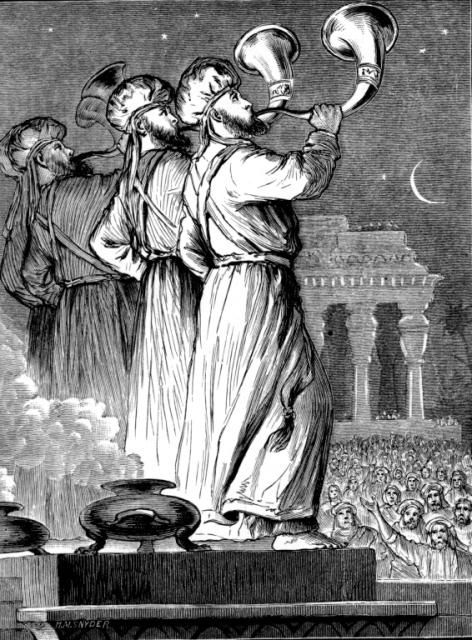
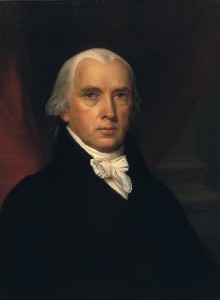
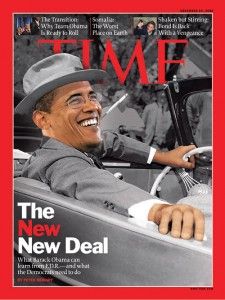
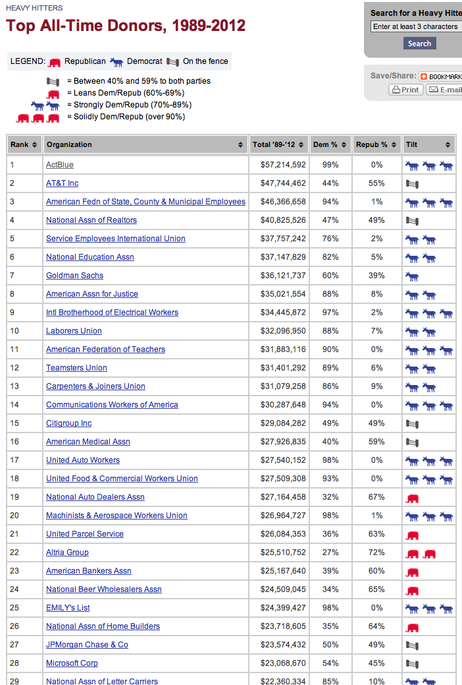
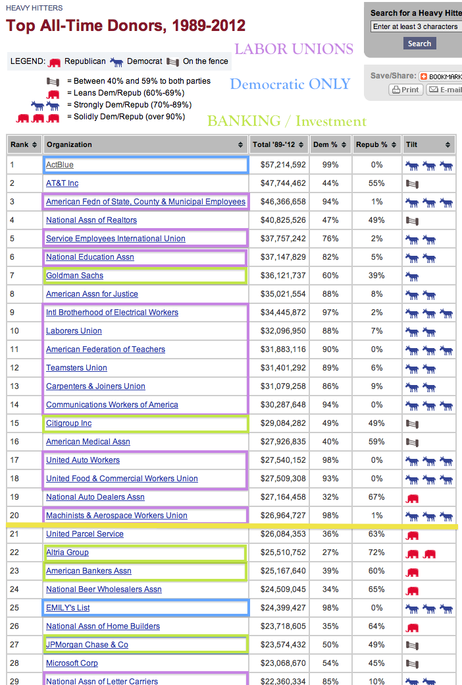
You must be logged in to post a comment.